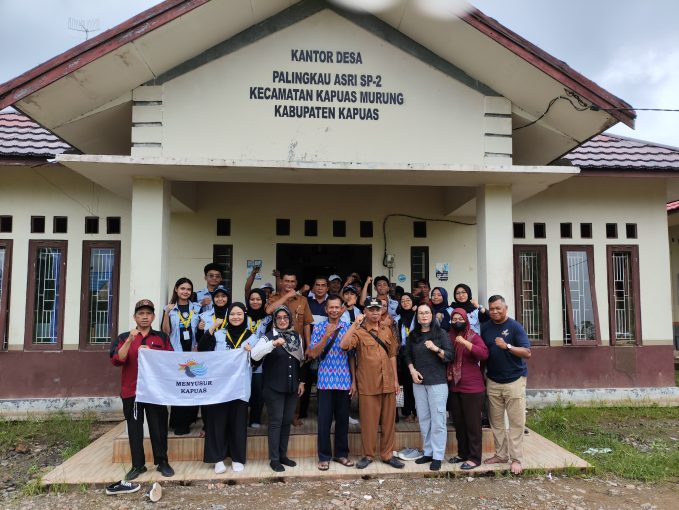
A student from the Agricultural Microbiology Study Program at Gadjah Mada University (UGM) class of 2021, Muhammad Prakosa Damarsejati, participated in the Community Empowerment Service Learning Program (KKN-PPM) for the second period of 2024 in Palingkau Asri Village, Kapuas Murung District, Kapuas Regency, Central Kalimantan. This KKN activity is a mandatory program included in the intramural activities that implement the tri dharma of higher education: education, research, and community service. It provides students with the experience of learning and working in community development activities as a medium for applying and developing science and technology outside the campus, according to the needs of the region, within a predetermined work mechanism.
As proof of the microbiology student’s service to the community, Damar has introduced an innovation applied in the work program he has implemented, namely, the production of compost fertilizer based on fermentation using plant litter and palm oil stems with a cellulose- and lignin-degrading bacterial starter. The oil palm plants in Palingkau Asri Village are not fully utilized; therefore, this innovation is expected to advance agriculture in Palingkau Asri Village. Consistent application of the compost fertilizer produced, according to the specified dosage, can enhance plant growth, particularly horticultural vegetables. Through this innovation, the most important value to remember is that in a large region like Kalimantan, there are certainly differences in ethnicity, race, and culture that must be respected. Despite these differences, we must remain polite, courteous, and understanding, creating synergy among each other that fosters harmony among the residents.
This innovation is a strong testament to achieving the goals of SDG 1: No Poverty, SDG 2: Zero Hunger, SDG 8: Decent Work and Economic Growth, and SDG 11: Sustainable Cities and Communities.
Author: Muhammad Prakosa Damarsejati
